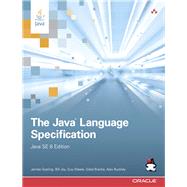The book provides complete, accurate, and detailed coverage of the Java programming language. It fully describes the new features added in Java SE 8, including lambda expressions, method references, default methods, type annotations, and repeating annotations. The book also includes many explanatory notes and carefully distinguishes the formal rules of the language from the practical behavior of compilers.








